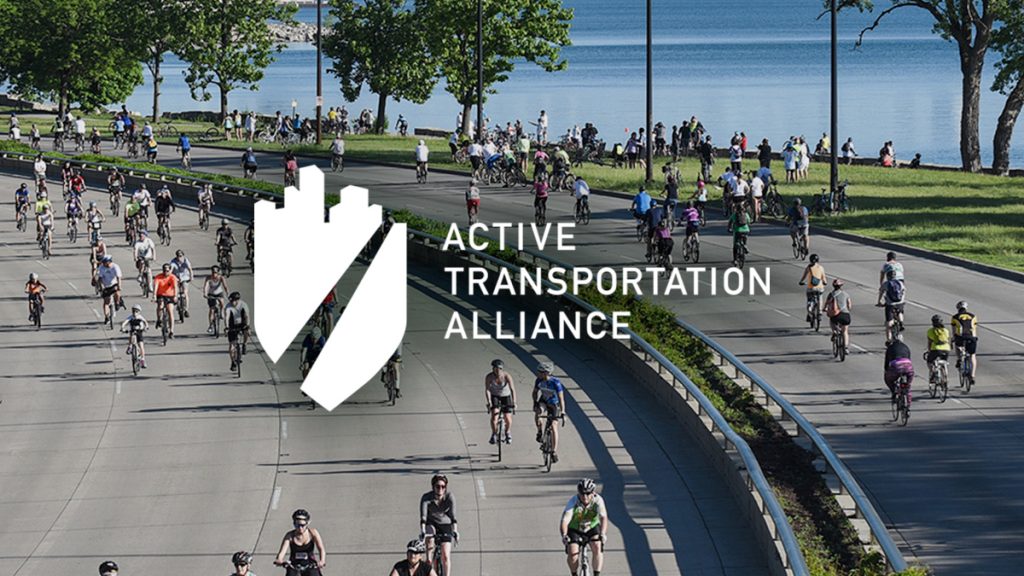For Immediate Release
ACTIVE TRANSPORTATION MEDIA CONTACT:
Ted Villaire
Communications director
Active Transportation Alliance
312-563-1118
[email protected]
Stories show the heavy toll of Chicago’s recent transit shutdown
Chicago, IL — Many thousands of people who use public transit were stranded when local transit agencies shut down their services on multiple days during the recent mass protests in Chicago.
Stories collected by Active Transportation Alliance show that during the shutdown transit riders were suddenly faced with no way to return home, no way to get to work, and they couldn’t reach healthcare appointments or make trips to the grocery store.
While disruptions of service are unavoidable, particularly during periods of mass protests, transit agencies must strive to enable freedom of movement, even in challenging conditions. The transit shutdowns overwhelmingly hurt workers and people who don’t have access to cars.
Here are several stories provided by people about the impact of the transit shutdown on their own lives and lives of loved ones:
- “I am an ICU nurse who relies on public transportation to get from the far north side of Chicago to get to work. I don’t have a car, and don’t plan on getting one. The shutdown meant that I, an ‘essential’ worker, could not get to my job where people rely on me to be present, be timely, and provide quality life saving care.”
- “The only way to reach my mother, who is almost 95 and who lives independently, was to ride my bike 25 miles and back.”
- “My partner works daily in the Magnificent Mile and we both rely heavily on the CTA to get us to and from work. With certain downtown stations shut down, my partner was unable to get to work.”
- “I am disabled and it is difficult for me to manage many downtown CTA stations as is. I was supposed to see my family in the suburbs for the first time in months. Due to the loop being closed, I could not switch trains to get to the orange line.”
Some additional insights from our story collection include:
- The majority of people we heard from were either stranded after work while trying to get home, unable to get to work or medical appointments, or stranded after peacefully protesting.
- 20 percent of responses were from people who had to miss work due to the transit shutdown.
- The next most common experiences were from people who missed a healthcare appointment or grocery store visit.
- People who were stranded either had to walk many miles or spend upwards of $30 on ride hailing, or forgo an essential trip as well as miss work or show up late to work, losing needed income.
- In place of entirely shutting down service, survey respondents suggested limiting service in targeted areas.
- Many respondents raised the added problem of finding out about the shutdowns with very short notice, with two hours being the greatest length of time notice given.
Among the most shocking stories were multiple accounts from healthcare workers describing the impact the shutdown had on them, their colleagues, and patients in the midst of the COVID-19 pandemic. One hospital worker shared: “I heard ‘I don’t know how I’m going to get to/get home from work’ repeatedly over the four days I worked in which CTA experienced closures. We were all working extra-long shifts (already burnt out from the pandemic) with persistent lack of knowing whether our relief would show up or not.”
Active Trans appreciates the unprecedented position Chicago’s leaders were faced with in making the decision to shut down the transit system. Balancing the need to maintain public safety while protecting the rights of residents is a complex task under normal circumstances, let alone during a global pandemic.
However, closing our entire transit system meant significantly limiting mobility for people across the region who lack transportation alternatives but need to travel. The effects of this can be devastating, particularly for people who can’t afford — or are unable to use — alternatives like ride hailing or a personal vehicle.
In the event transit services need temporary rerouting or temporary suspensions due to safety, reliable alternatives must be in place to support people who need to get home, to work, or to meet a critical needs. Shutting down the entire system is destabilizing for the region and harmful to people without other options for getting around.
People who were impacted by the transit shutdown are invited to share their experiences at http://go.pardot.com/e/213232/transitshutdown/dnwjf/254268480?h=NGTzn4UwJbC1XJzUHeYW2Um5cpOYld1pkvjK8GoIIFk.

